Home > Colorado > Colorado Farm to Table > Colorado Cattle Ranchers are Home on the Range
Colorado Cattle Ranchers are Home on the Range
In partnership with: Colorado Department of Agriculture
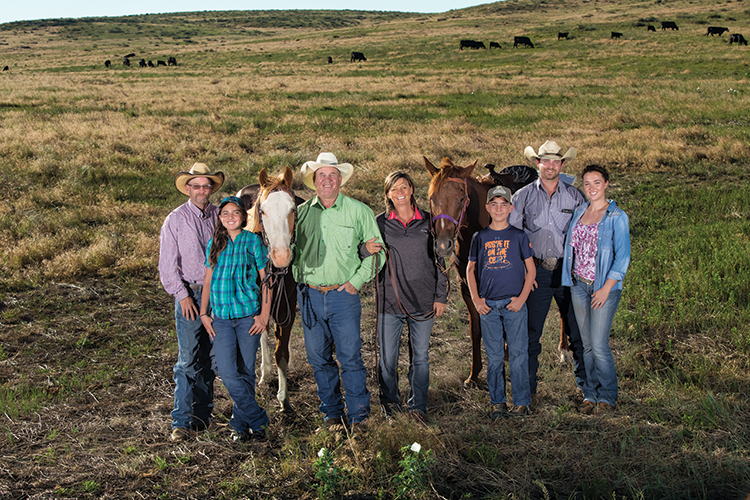
Colorado’s ranching heritage runs deep – so deep, in fact, that nine years before Colorado became a state, ranchers formed the Colorado Cattlemen’s Association (CCA) in 1867. It was the nation’s first cattlemen’s association.
“The original purpose was for protection and banding together to prevent theft of livestock, and that’s still the case today,” says Harold Yoder, who served as president of the Colorado Cattlemen’s Association in the 1980s and has been a member since the 1960s. “As time went on, the CCA represented the rural parts of Colorado and assisted with problems for ranchers affected by state and federal legislation. As ranchers, we can’t be in Denver or Washington, D.C., debating legislation that is detrimental to us, so the CCA helps take care of its members in that way.”
Approximately 12,000 beef producers live and work in Colorado, and the CCA has about 2,500 members. The state has around 2.7 million head of cattle, which generated $4 billion in 2015.
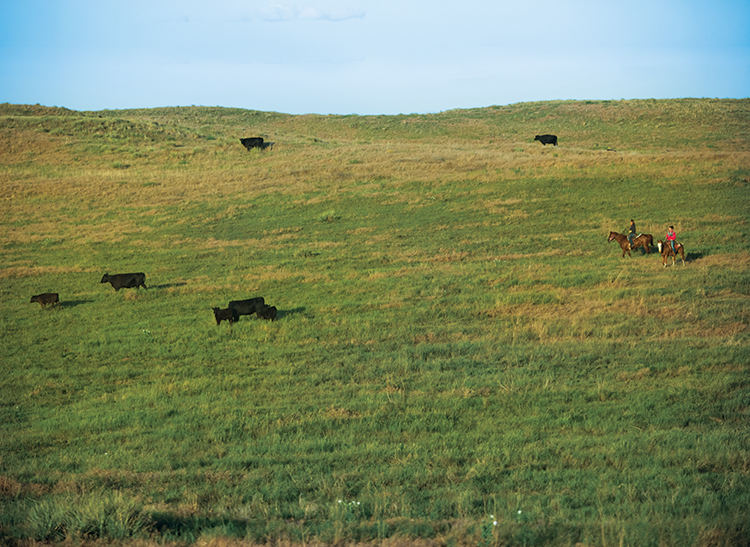 Belonging to the CCA
Belonging to the CCA
Yoder and his wife, Linda, raise cattle southeast of Limon where his father – also a past president of the CCA – began ranching in 1947. Yoder became a partner in 1969, and today, his sons, Sid and Kenny, are both ranchers as well.
“The CCA allows ranchers to make a big impact, sometimes on a state and national level, even from their local community,” Yoder says. “It also allows us to meet people like us who are also making a living in the cattle industry and have the same challenges we have. Being involved in an organization that represents us, we feel obligated to give what we can to it, and the CCA provides an avenue.”
Terry Fankhauser is the current executive vice president of the CCA and has been in that role since 2001. He was raised on a ranch in Kansas, where his parents continue to raise cattle.
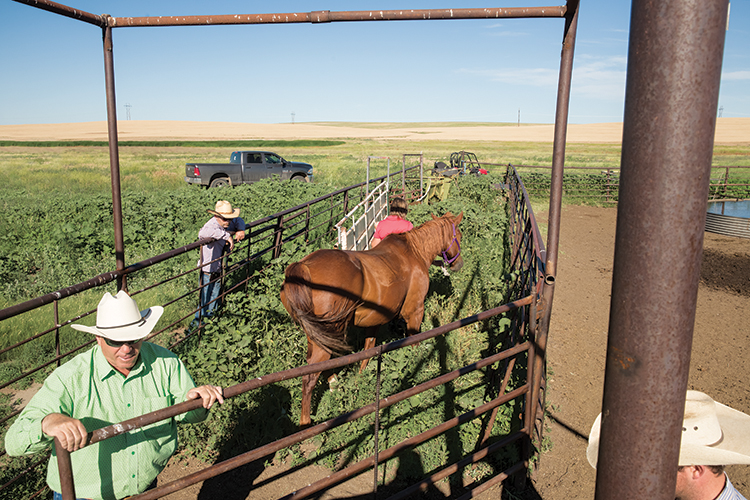 “The reason I’m so sincere about this job is because it correlates to experiences my family has had,” Fankhauser says. “We want family ranches to be able to stay in the family and thrive from generation to generation. The CCA is looking at helping diversify agriculture production so ranch families can bring in more revenue by producing not only beef, but also habitats for wildlife under concern. We hope that brings back more opportunities for family members to come back to the ranch.”
“The reason I’m so sincere about this job is because it correlates to experiences my family has had,” Fankhauser says. “We want family ranches to be able to stay in the family and thrive from generation to generation. The CCA is looking at helping diversify agriculture production so ranch families can bring in more revenue by producing not only beef, but also habitats for wildlife under concern. We hope that brings back more opportunities for family members to come back to the ranch.”
Back when the CCA was founded, ranch families made a living providing beef to miners. “Many of our former members have towns and counties named after them because they helped shape the future of Colorado even before it was a state,” Fankhauser says. “The beef industry is an integral part of Colorado’s heritage. The CCA’s goal is to preserve the ability for agriculture to continue to be successful and create tools to aid producers. People come to Colorado for its wide open spaces, mountains, clear water and clean air, and without ag producers and their conservation ethics, Colorado wouldn’t have that.”
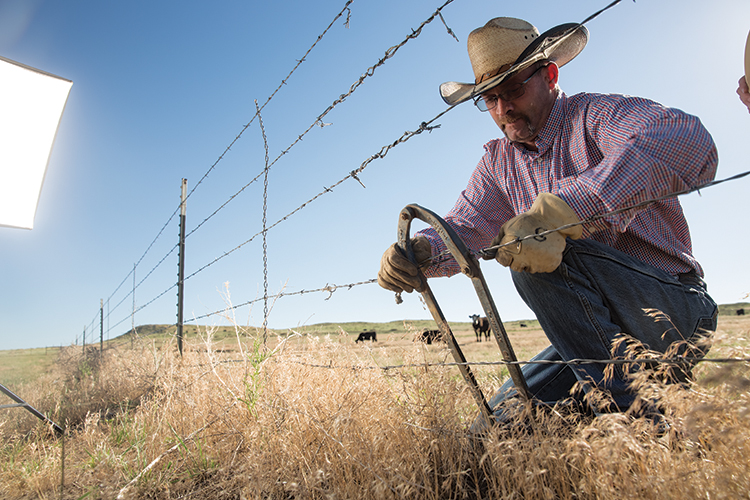
Conservation Matters
Colorado’s cattle ranching families have a long tradition of providing a safe, nutritious food supply as well as being good stewards of Colorado’s land, water and wildlife resources. Keven and Sandi Turecek of Deer Trail are one example. They were awarded the prestigious Colorado Leopold Conservation Award in 2016 for their conservation efforts on their ranch, where they run a cattle operation and grow 5,000 acres of crops, mostly winter wheat.
The Tureceks have two sons, two daughters and six grandchildren. Their sons, Travis and Tyler, are both partners in the ranch.
![colorado cattle ranch [infographic]](https://eadn-wc01-4177395.nxedge.io/wp-content/uploads/2020/05/Screen-Shot-2016-11-16-at-11.17.15-AM.jpg) “Winning the conservation award was the most humbling experience of my life,” Keven Turecek says. “I have studied the Leopold Conservation Award for years, and I’ve always thought the recipients were very good stewards of the land. I had no idea the environmental changes and programs Sandi and I have implemented on our land brought us to that level.”
“Winning the conservation award was the most humbling experience of my life,” Keven Turecek says. “I have studied the Leopold Conservation Award for years, and I’ve always thought the recipients were very good stewards of the land. I had no idea the environmental changes and programs Sandi and I have implemented on our land brought us to that level.”
The Tureceks have taken steps to reduce tillage, which helps eliminate erosion as the soil is not disturbed each year. They’ve terraced hillsides to stop water and wind erosion. They’ve also planted farmland with native grasses as well as thousands of trees over the last 30 years.
“In fact, we were planting trees when we got the call that we had been chosen for the award,” Keven says. “We were just blown away when we found out we had won.”
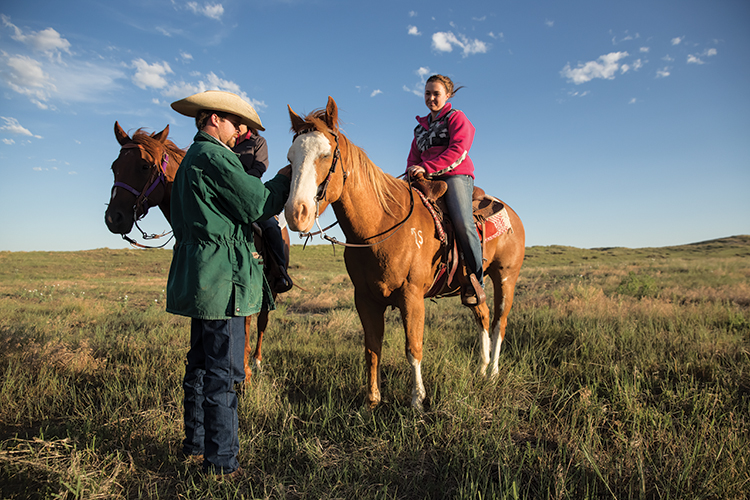 Advancing the Legacy
Advancing the Legacy
In 2017, the CCA plans to celebrate its 150th anniversary in a memorable way. Its tagline is “Advancing the Legacy,” and Fankhauser says it plans to refresh, renew and become even more relevant for its members. One example is the new smartphone app CCA started to replace its weekly “Bulletin” emails. The app enables the CCA to provide updates to members 24/7.
In June 2017, the CCA Annual Convention in Grand Junction will include a daylong celebration of the 150th anniversary.
“We will emphasize our members because they are the people who make us who we are,” Fankhauser says. “We hope to have a big outdoor barbecue that evening with stories, cool things to commemorate the anniversary and some well-known individuals from our industry. The CCA is full of great stories about great people that deserve to live on and be told.”



